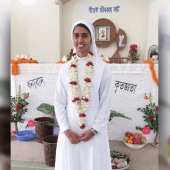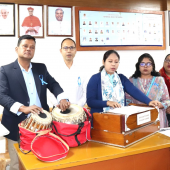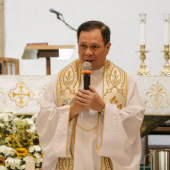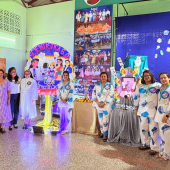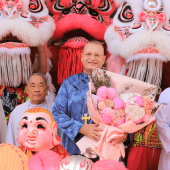Caritas Bangladesh opens a psychosocial counseling unit in Khulna
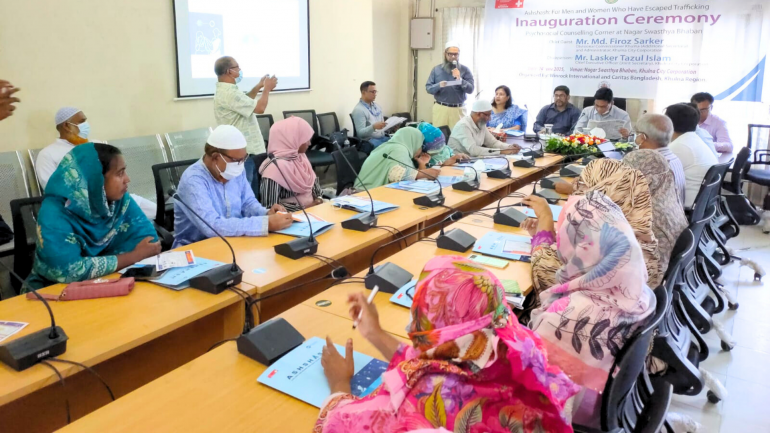
On June 24, 2025, Caritas Bangladesh, Khulna Region, inaugurated the Psychosocial Counselling Corner at Nagar Health Building under Khulna City Corporation.
Lasker Tajul Islam, chief executive officer (joint secretary) of Khulna City Corporation (KCC) presided over the event.
Md. Firoz Sarkar, divisional commissioner of Khulna (additional secretary) and administrator of KCC, was the chief guest and inaugurated the Psychosocial Counselling Corner by cutting the ribbon and unveiling the nameplate.
Special guests included the Secretary of KCC, Sharif Asif Rahman; Civil Surgeon Dr. Mosammat Mahfuza Khatun; and Dr. Sharif Shamuel Islam, Chief Health Officer of KCC.
Dipta Rakshit, Country Representative and Project Director of Winrock International, delivered the welcome speech, while Sheikh Nazmul Islam, Senior Manager of the Ashshash project, presented an overview of the project.
Provash Chandra Biswas, the Project Manager, also made remarks, and Albino Nath, the Regional Director of Caritas Bangladesh, presented a vote of thanks.
The ceremony was attended by representatives from government and non-government organizations, stakeholders, and project staff.
The Counselling Corner aims to support survivors of human trafficking through trauma-informed counseling and rehabilitation services, and in the long run, it would help build stable mental health for all.
Psychosocial therapy in Bangladesh is challenging because of poor infrastructure, societal stigma, and a lack of resources. Even though the government and NGOs are working to address these problems, there is still a big treatment gap and a need for more qualified specialists and services that are easy to get to.
Bangladesh doesn't have enough mental health professionals, like clinical psychologists and psychiatrists, to help all the people who need it.
People often don't want to get professional help for mental health problems because they are embarrassed about them. Instead, they go to traditional healers.
Many people in rural areas don't get the mental health care they need because most of the specialist facilities and services are in cities, especially Dhaka, the country's capital.
A large number of people with mental health problems don't get the care they need, which shows that there is a big gap between the need for and availability of services.
The problem of getting treatment late or not at all is made worse by the fact that many people don't know about mental health concerns or where to obtain help.
The country has created a national mental health strategy and a strategic plan to provide mental health care.
The 2018 Mental Health Act aims to protect the rights and well-being of people with mental diseases.
Several NGOs, including Caritas Bangladesh, are working to improve psychosocial support in communities, reduce stigma, and raise awareness.
Many programs focus on providing mental health care, especially to kids and teens in communities.
Some organizations use online platforms to provide counseling for a wide spectrum of mental health problems.
In mental health, efforts are underway to enhance professional training and capacity building.
Even if there are plans and policies in place, people are still worried about how to get enough money to make mental health programs work.
The way that most people think about mental health is still a barrier to putting policies into action and getting services.
It's challenging to ensure everyone who needs help gets it and to enforce the Mental Health Act.
In short, Bangladesh is making efforts to address the mental health crisis, yet numerous issues remain unresolved. It is important to address the lack of mental health experts, eliminate stigma, and improve infrastructure so that persons with mental health disorders may get the care and support they need.
Radio Veritas Asia (RVA), a media platform of the Catholic Church, aims to share Christ. RVA started in 1969 as a continental Catholic radio station to serve Asian countries in their respective local language, thus earning the tag “the Voice of Asian Christianity.” Responding to the emerging context, RVA embraced media platforms to connect with the global Asian audience via its 21 language websites and various social media platforms.









